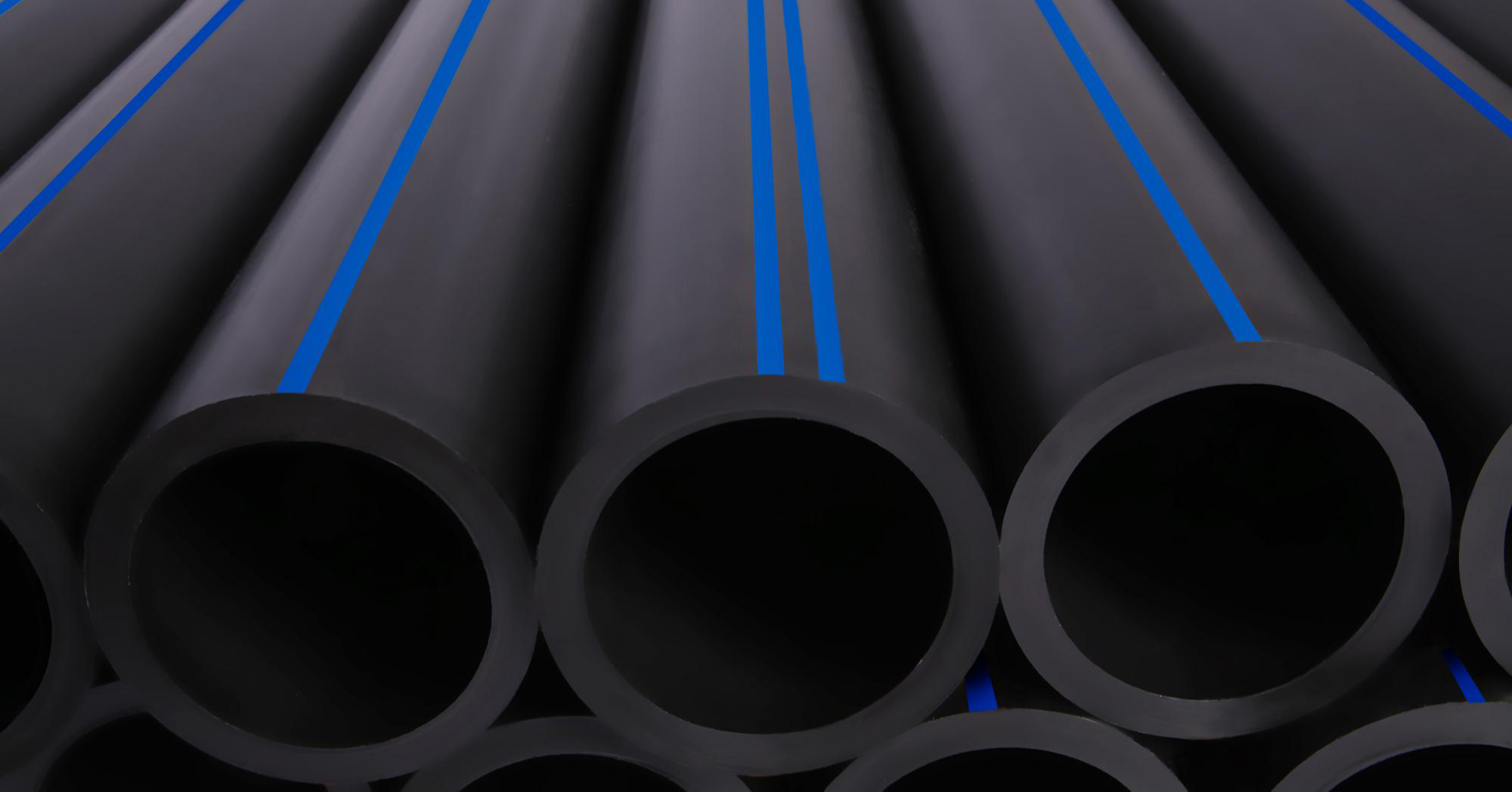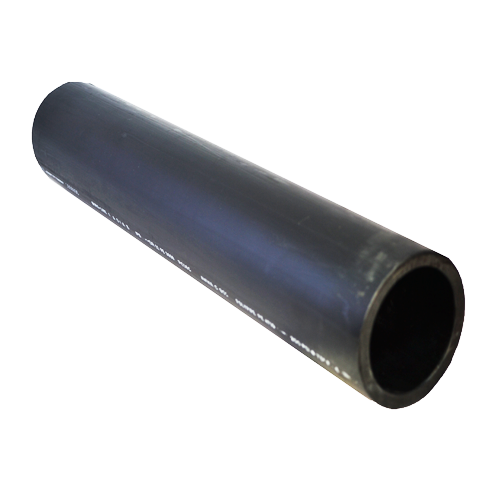Understanding the Secret Benefits of HDPE Pipeline for Water and Wastewater Monitoring
Making use of HDPE pipe in water and wastewater administration provides various benefits that merit factor to consider. Its extraordinary toughness and lengthy life expectancy make it a recommended selection for several jobs. Additionally, the product's resistance to rust and chemical damages enhances its integrity in numerous atmospheres. Nonetheless, the benefits extend beyond simply longevity and resistance. Exploring its cost-effectiveness and environmental effect discloses a lot more engaging factors for its extensive adoption in modern framework
Exceptional Durability and Longevity

HDPE pipeline stands out for its exceptional toughness and longevity, making it a favored selection in water monitoring systems. Created from high-density polyethylene, these pipelines can withstand significant pressure and stress and anxiety, making certain reputable efficiency with time. Their robust nature enables them to withstand extreme environmental conditions, consisting of temperature level changes and dirt movements, which can cause various other products to fail.
The life expectancy of HDPE pipes typically surpasses 50 years, offering a cost-efficient remedy for municipalities and sectors alike. In addition, the product's light-weight residential or commercial properties simplify installation, reducing labor expenses and durations. This durability reduces the need for regular repair work or substitutes, additionally boosting its economic charm.
In water management applications, the integrity of HDPE pipelines suggests fewer disturbances and boosted service connection, making them indispensable to sustainable facilities advancement. The mix of sturdiness and long life solidifies HDPE's role as a keystone in efficient water management remedies.

Resistance to Corrosion and Chemical Damages
While lots of materials catch rust and chemical damage with time, HDPE pipelines exhibit exceptional resistance, making them ideal for different water monitoring applications. This durability stems from the molecular framework of high-density polyethylene, which is naturally non-reactive and does not corrode like metals or degrade from direct exposure to severe chemicals. Consequently, HDPE is highly reliable in environments with aggressive materials, such as wastewater systems that may contain acids, bases, and organic solvents.
In addition, HDPE pipes can endure ecological factors such as dirt level of acidity and saline conditions, further improving their suitability for varied applications (Midland TX HDPE Pipe Fittings in Stock). Their capacity to keep architectural integrity over time reduces the danger of leakages and failures, which is critical in ensuring the security and integrity of water distribution and wastewater monitoring systems. The resistance to corrosion and chemical damages significantly contributes to the overall effectiveness and longevity of HDPE piping remedies.
Cost-Effectiveness and Economic Benefits
When thinking about the financial implications of water monitoring systems, the cost-effectiveness of HDPE pipelines ends up being apparent. These pipes supply lower installation and upkeep costs compared to typical products like metal or concrete. Their lightweight nature simplifies transport and installment, causing minimized labor expenditures. Additionally, HDPE pipelines exhibit a long life-span, typically going beyond half a century, which translates to fewer substitutes and lasting savings.
The resistance of HDPE to rust and chemical damage minimizes the demand for costly repair services and replacements. The pipes likewise support efficient water flow, decreasing energy costs connected with pumping systems. By minimizing leaks and water loss, HDPE pipes add to substantial economic benefits for communities and sectors alike. Generally, the initial investment in HDPE piping can yield substantial economic returns over the life-span of the water monitoring system, making it a prudent option for lasting facilities development.
Ecological Sustainability and Lowered Effect

Convenience and Adaptability in Installation
Since of their one-of-a-kind residential properties, HDPE pipes provide amazing versatility and flexibility in installation, making them ideal for a large range of applications. Their lightweight nature allows for less complicated handling and transportation, lowering labor costs and installation time. HDPE pipelines can be bent and shaped to fit numerous terrains and task needs, which is especially useful in testing settings.
Furthermore, their resistance to corrosion and chemical damage enables setup in varied settings without the demand for specialized safety layers. The ability to fuse joints creates a constant, leak-free system, enhancing the total honesty and integrity of the installment. HDPE's versatility additionally fits ground activity, reducing the threat of damages in areas susceptible to shifting soil. Generally, these attributes make HDPE pipes not only versatile but additionally a recommended selection for water and wastewater monitoring systems.
Often Asked Inquiries
How Does HDPE Pipeline Contrast to PVC in Water Management Applications?
HDPE pipeline supplies premium adaptability, resistance to corrosion, and durability contrasted to PVC. Its lighter weight assists in simpler installment, while its long life-span lowers substitute expenses, making HDPE a favored selection in water management applications.
What Is the Life-span of HDPE Pipeline Under Normal Problems?
Under normal conditions, HDPE pipes can have a life-span varying from 50 to 100 years. Their toughness and resistance to deterioration add to their long-lasting performance in numerous applications, making them a reputable selection for framework.
Are HDPE Pipes Recyclable After Their Service Life?
Yes, HDPE pipes are recyclable after their service life. Texas hdpe pipe manufacturer. They can be processed and repurposed right into brand-new items, greatly lowering ecological effect and promoting sustainability within the industry, making them an environmentally friendly selection for piping solutions
What Is the Setup Process for HDPE Piping?
The setup procedure for HDPE pipelines includes site preparation, trenching, pipe combination or mechanical signing up with, backfilling, and pressure testing. Appropriate strategies assure a resilient and get more info efficient system for moving water and wastewater successfully.
Can HDPE Water Lines Be Made Use Of for Both Potable and Non-Potable Water Solutions?
Yes, HDPE pipelines can be made use of for both drinkable and non-potable water supply. Their flexibility, sturdiness, and resistance to rust make them appropriate for numerous applications, ensuring safe and reliable transport of water in various contexts.